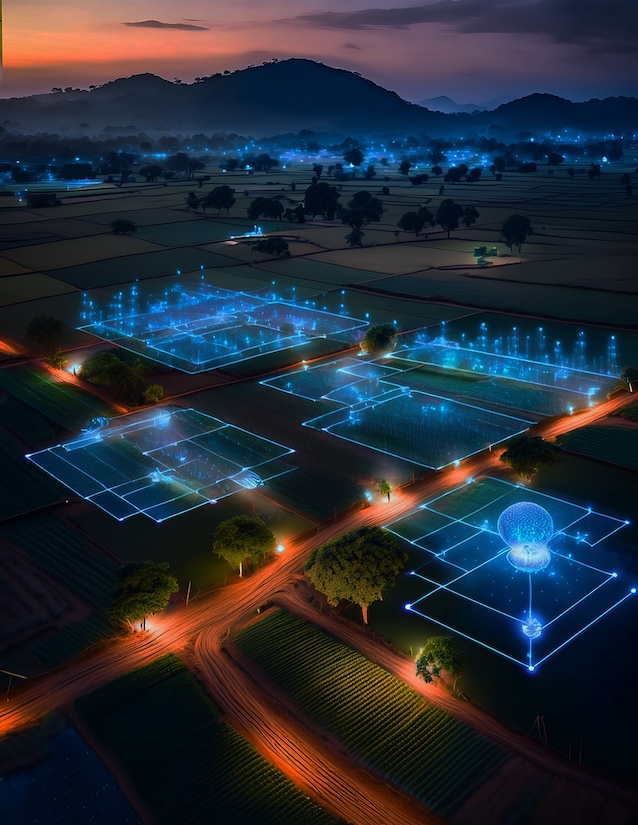Why AI is a Big Deal for Farming
By 2050, we’ll need to feed nearly 10 billion people, sustainably and equitably, while battling climate change, and food insecurity.
This daunting task needs to be addressed – and where AI led innovation can lead the charge.
Think of AI as the ultimate assistant for farmers. It’s capable of crunching endless streams of data—from soil health and crop growth to market trends and weather forecasts—to provide real-time insights and recommendations. For smallholder farmers in emerging markets, who grow a huge chunk of the world’s food, these insights can be life-changing. They mean better yields, smarter resource use, and the ability to adapt to climate challenges.
With AI tools, farmers don’t have to rely on guesswork. They can plan when and what to plant, tackle pests early, and even find out which crop varieties are best suited to drought or flood-prone areas. The result? A more resilient farming system that boosts productivity and helps farmers get the most out of their hard work.
Navigating the Challenges
Of course, no innovation comes without its challenges. Implementing AI in agriculture means tackling issues like data privacy, potential biases, and tech accessibility. Plus, not everyone has the same level of digital literacy or internet connectivity—especially in rural areas. But with careful planning, inclusive design, and partnerships that bring technology to those who need it most, these challenges can be met head-on.
The bottom line? AI has the power to create a future where farming is more productive, sustainable, and fair. And it’s not just farmers who stand to gain; we all benefit from a more resilient food system that can feed our growing world while protecting the planet.
What EMpact is Doing
We’re not just talking the talk; we’re walking the walk. At EMpact, we’re setting up AI Labs and working hand-in-hand with startups and partners to bring AI-powered solutions to the agricultural value chain. Our focus? Practical, scalable tools that farmers and agribusinesses can actually use. By fostering digital transformation in agriculture and associated financial services, we aim to create a ripple effect that improves food systems, supports sustainability, and ultimately benefits us all.
Our new report, “Building Sustainable Food Systems Using Artificial Intelligence,” breaks down the are of the possible with AI. Be it helping farmers predict weather patterns, spot pest outbreaks before they spread, or connect directly with buyers for fairer prices, AI has the potential to revolutionize the way we farm and distribute food.
This vision for AI in agriculture complements our previous work on AI for financial inclusion, where we explored how data-driven tools can democratize access to financial services and empower underserved communities. Together, these approaches showcase how AI can be a force for good across multiple sectors, driving economic and social growth in transformative ways.
Dive into our report to see how AI can help us move toward a smarter, more sustainable future for agriculture.
Here is a NotebookLM DeepDive podcast that you can enjoy too!

Building Sustainable Food Systems Using Artificial Intelligence
Send download link to:



